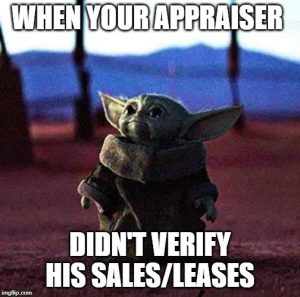Appraiser’s Lack of Verification of Data Leads to Affirmed Assessment
In a recent Tax Court matter, the Plaintiff challenged the 2016 tax year assessment of property currently being occupied by a bank. The Bergen County Tax Board and the Tax Court affirmed the assessment.
The Court’s legal analysis began with the well-established principle that the original assessment is entitled to a presumption of validity. MSGW Real Estate Fund, LLC v. Borough of Mountain Lakes, 18 N.J. Tax 364, 373 (Tax 1998). The appealing party has the burden to provide “cogent evidence” to overcome the presumption and prove the assessment is erroneous. If the Court determines that sufficient evidence to overcome the presumption has not been provide, the assessment shall be affirmed and the Court need not make an independent determination of value. Ford Motor Co. v. Twp. of Edison, 127 N.J. 290, 312 (1992).
If the Court determines the presumption of correctness has been overcome, the Court is then permitted to proceed to address the weight of the evidence provided by the parties and conclude the matter based on a fair preponderance of the evidence. The Court then reviews the highest and best use conclusions by the parties. Here, the Court accepted the highest and best use was as a general commercial retail property.
Next, the Court analyzed the valuation evidence provided. Plaintiff’s appraiser utilized the sales comparison and income capitalization approaches to value the property. The direct sales comparison approach resulted in a $1,120,000 value and the income approach resulted in a $1,110,000 value. The final valuation was $1,115,000. The appraiser provided five comparable sales and five comparable leases in support of his resulting values, however, upon testimony it showed that at least four of the sales and leases were not properly verified. N.J.S.A. 2A:83-1 requires that real estate appraisal experts verify the data they rely on to reach an opinion of value. This is equally applicable for the use of comparable sales as well as leases. The appraiser’s only method of verification for sales 1-4 was via MLS listings. The appraiser verified sale 5 through the grantor. An appraiser must take additional steps to verify each sale such as communicating with brokers, sellers, or purchasers of each comparable property. Without verifying the accuracy of the information, the expert cannot credibly offer an opinion of market rent or fair market value. As a result, the court was unable to consider these four comparable sales and leases in supporting the appraiser’s valuation of the property. One sale and one comparable lease was insufficient evidence to make a determination by a preponderance of evidence. Accordingly, the county board of taxation decision was affirmed.
A copy of the Fremartin v. Borough of Westwood decision can be found here.








